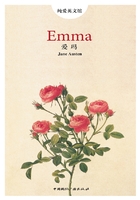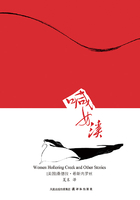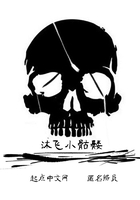Ad Astra
I DON'T KNOW what we were. With the exception of Comyn, we had started out Americans, but after three years, in our British tunics and British wings and here and there a ribbon, I don't suppose we had even bothered in three years to wonder what we were, to think or to remember.
And on that day, that evening, we were even less than that, or more than that:either beneath or beyond the knowledge that we had not even wondered in three years. The subadar, after a while he was there, in his turban and his trick major's pips—said that we were like men trying to move in water."But soon it will clear away,"he said."The effluvium of hatred and of words.We are like men trying to move in water, with held breath watching our terrific and infinitesimal limbs, watching one another's terrific stasis without touch, without contact, robbed of all save the impotence and the need."
We were in the car then, going to Amiens, Sartoris driving and Comyn sitting half a head above him in the front seat like a tackling dummy, the subadar, Bland and I in back, each with a bottle or two in his pockets. Except the subadar, that is.He was squat, small and thick, yet his sobriety was colossal.In that maelstrom of alcohol where the rest of us had fled our inescapable selves he was like a rock, talking quietly in a grave bass four sizes too big for him:"In my country I was prince.But all men are brothers."
But after twelve years I think of us as bugs in the surface of the water, isolant and aimless and unflagging. Not on the surface;in it, within that line of demarcation not air and not water, sometimes submerged, sometimes not.You have watched an unbreaking groundswell in a cove, the water shallow, the cove quiet, a little sinister with satiate familiarity, while beyond the darkling horizon the dying storm has raged on.That was the water, we the flotsam.Even after twelve years it is no clearer than that.It had no beginning and no ending.Out of nothing we howled, unwitting the storm which we had escaped and the foreign strand which we could not escape;that in the interval between two surges of the swell we died who had been too young to have ever lived.
We stopped in the middle of the road to drink again. The land was dark and empty.And quiet:that was what you noticed, remarked.You could hear the earth breathe, like coming out of ether, like it did not yet know, believe, that it was awake."But now it is peace,"the subadar said."All men are brothers."
"You spoke before the Union once,"Bland said. He was blond and tall.When he passed through a room where women were he left a sighing wake like a ferry boat entering the slip.He was a Southerner, too, like Sartoris;but unlike Sartoris, in the five months he had been out, no one had ever found a bullet hole in his machine.But he had transferred out of an Oxford battalion—he was a Rhodes scholar—with a barnacle and a wound-stripe.When he was tight he would talk about his wife, though we all knew that he was not married.
He took the bottle from Sartoris and drank."I've got the sweetest little wife,"he said."Let me tell you about her."
"Don't tell us,"Sartoris said."Give her to Comyn. He wants a girl."
"All right,"Bland said."You can have her, Comyn."
"Is she blonde?"Comyn said.
"I don't know,"Bland said. He turned back to the subadar,"You spoke before the Union once.I remember you."
"Ah,"the subadar said."Oxford. Yes."
"He can attend their schools among the gentleborn, the bleach-skinned,"Bland said."But he cannot hold their commission, because gentility is a matter of color and not lineage or behavior."
"Fighting is more important than truth,"the subadar said."So we must restrict the prestige and privileges of it to the few so that it will not lose popularity with the many who have to die."
"Why more important?"I said."I thought this one was being fought to end war forevermore."
The subadar made a brief gesture, dark, deprecatory, tranquil."I was a white man also for that moment. It is more important for the Caucasian because he is only what he can do;it is the sum of him."
"So you see further than we see?"
"A man sees further looking out of the dark upon the light than a man does in the light and looking out upon the light. That is the principle of the spyglass.The lens is only to tease him with that which the sense that suffers and desires can never affirm."
"What do you see, then?"Bland said.
"I see girls,"Comyn said."I see acres and acres of the yellow hair of them like wheat and me among the wheat. Have ye ever watched a hidden dog quartering a wheat field, any of yez?"
"Not hunting bitches,"Bland said.
Comyn turned in the seat, thick and huge. He was big as all outdoors.To watch two mechanics shoehorning him into the cockpit of a Dolphin like two chambermaids putting an emergency bolster into a case too small for it, was a sight to see."I will beat the head off ye for a shilling,"he said.
"So you believe in the Tightness of man?"I said.
"I will beat the heads off yez all for a shilling,"Comyn said.
"I believe in the pitiableness of man,"the subadar said.
"That is better."
"I will give yez a shilling, then,"Comyn said.
"All right,"Sartoris said."Did you ever try a little whisky for the night air, any of you all?"
Comyn took the bottle and drank."Acres and acres of them,"he said,"with their little round white woman parts gleaming among the moiling wheat."
So we drank again, on the lonely road between two beet fields, in the dark quiet, and the turn of the inebriation began to make. It came back from wherever it had gone, rolling down upon us and upon the grave sober rock of the subadar until his voice sounded remote and tranquil and dreamlike, saying that we were brothers.Monaghan was there then, standing beside our car in the full glare of the headlights of his car, in an R.F.C.cap and an American tunic with both shoulder straps flapping loose, drinking from Comyn's bottle.Beside him stood a second man, also in a tunic shorter and trimmer than ours, with a bandage about his head.
"I'll fight you,"Comyn told Monaghan."I'll give you the shilling."
"All right,"Monaghan said. He drank again.
"We are all brothers,"the subadar said."Sometimes we pause at the wrong inn. We think it is night and we stop, when it is not night.That is all."
"I'll give you a sovereign,"Comyn told Monaghan.
"All right,"Monaghan said. He extended the bottle to the other man, the one with the bandaged head.
"I thangk you,"the man said."I haf plenty yet."
"I'll fight him,"Comyn said.
"It is because we can do only within the heart,"the subadar said."While we see beyond the heart."
"I'll be damned if you will,"Monaghan said."He's mine."He turned to the man with the bandaged head."Aren't you mine?Here;drink."
"I haf plenty, I thangk you, gentlemen,"the other said. But I don't think any of us paid much attention to him until we were inside the Cloche-Clos.It was crowded, full of noise and smoke.When we entered all the noise ceased, like a string cut in two, the end raveling back into a sort of shocked consternation of pivoting faces, and the waiter, an old man in a dirty apron falling back before us, slackjawed, with an expression of outraged unbelief, like an atheist confronted with either Christ or the devil.We crossed the room, the waiter retreating before us, paced by the turning outraged faces, to a table adjacent to one where three French officers sat watching us with that same expression of astonishment and then outrage and then anger.As one they rose;the whole room, the silence, became staccato with voices, like machine guns.That was when I turned and looked at Monaghan's companion for the first time, in his green tunic and his black snug breeks and his black boots and his bandage.He had cut himself recently shaving, and with his bandaged head and his face polite and dazed and bloodless and sick, he looked like Monaghan had been using him pretty hard.Roundfaced, not old, with his immaculately turned bandage which served only to emphasize the generations of difference between him and the turbaned subadar, flanked by Monaghan with his wild face and wild tunic and surrounded by the French people's shocked and outraged faces, he appeared to contemplate with a polite and alert concern his own struggle against the inebriation which Monaghan was forcing upon him.There was something Anthony-like about him:rigid, soldierly, with every button in place, with his unblemished bandage and his fresh razor cuts, he appeared to muse furiously upon a clear flame of a certain conviction of individual behavior above a violent and inexplicable chaos.Then I remarked Monaghan's second companion:an American military policeman.He was not drinking.He sat beside the German, rolling cigarettes from a cloth sack.
On the German's other side Monaghan was filling his glass."I brought him down this morning,"he said."I'm going to take him home with me."
"Why?"Bland said."What do you want with him?"
"Because he belongs to me,"Monaghan said. He set the full glass before the German."Here;drink."
"I once thought about taking one home to my wife,"Bland said."So I could prove to her that I have only been to a war. But I never could find a good one.A whole one, I mean."
"Come on,"Monaghan said."Drink."
"I haf plenty,"the German said."All day I haf plenty."
"Do you want to go to America with him?"Bland said:
"Yes. I would ligk it.Thanks."
"Sure you'll like it,"Monaghan said."I'll make a man of you. Drink."
The German raised the glass, but he merely held it in his hand. His face was strained, deprecatory, yet with a kind of sereneness, like that of a man who has conquered himself.I imagine some of the old martyrs must have looked at the lions with that expression.He was sick, too.Not from the liquor:from his head."I haf in Beyreuth a wife and a little wohn.Mine son.I haf not him yet seen."
"Ah,"the subadar said."Beyreuth. I was there one spring."
"Ah,"the German said. He looked quickly at the subadar."So?The music?"
"Yes,"the subadar said."In your music a few of you have felt, tasted, lived, the true brotherhood. The rest of us can only look beyond the heart.But we can follow them for a little while in the music."
"And then we must return,"the German said."That iss not good. Why must we yet return always?"
"It is not the time for that yet,"the subadar said."But soon……It is not as far as it once was. Not now."
"Yes,"the German said."Defeat will be good for us. Defeat iss good for art;victory, it iss not good."
"So you admit you were whipped,"Comyn said. He was sweating again, and Sartoris'nostrils were quite white, I thought of what the subadar had said about men in water.Only our water was drunkenness:that isolation of alcoholism which drives men to shout and laugh and fight, not with one another but with their unbearable selves which, drunk, they are even more fain and still less fell to escape.Loud and overloud, unwitting the black thunderhead of outraged France(steadily the other tables were being emptied;the other customers were now clotted about the high desk where the patronne, an old woman in steel spectacles, sat, a wad of knitting on the ledge before her)we shouted at one another, speaking in foreign tongues out of our inescapable isolations, reiterant, unlistened to by one another;while submerged by us and more foreign still, the German and the subadar talked quietly of music, art, the victory born of defeat.And outside in the chill November darkness was the suspension, the not-quite-believing, not-quite-awakened nightmare, the breathing spell of the old verbiaged lusts and the buntinged and panoplied greeds.
"By God, I'm shanty Irish,"Monaghan said."That's what I am."
"What about it?"Sartoris said, his nostrils like chalk against his high-colored face. His twin brother had been killed in July.He was in a Camel squadron below us, and Sartoris was down there when it happened.For a week after that, as soon as he came in from patrol he would fill his tanks and drums and go out again, alone.One day somebody saw him, roosting about five thousand feet above an old Ak.W.I suppose the other guy who was with his brother that morning had seen the markings on the Hun patrol leader's crate;anyway, that's what Sartoris was doing, using the Ak.W.for bait.Where he got it and who he got to fly it, we didn't know.But he got three Huns that week, catching them dead when they dived on the Ak.W.,and on the eighth day he didn't go out again."He must have got him,"Hume said.But we didn't know.He never told us.But after that, he was all right again.He never did talk much;just did his patrols and maybe once a week he'd sit and drink his nostrils white in a quiet sort of way.
Bland was filling his glass, a drop at a time almost, with a catlike indolence. I could see why men didn't like him and why women did.Comyn, his arms crossed on the table, his cuff in a pool of spilt liquor, was staring at the German.His eyes were bloodshot, a little protuberant.Beneath his down-crushed monkey cap the American M.P.smoked his meager cigarettes, his face quite blank.The steel chain of his whistle looped into his breast pocket, his pistol was hunched forward onto his lap.Beyond, the French people, the soldiers, the waiter, the patronne, clotted at the desk.I could hear their voices like from a distance, like crickets in September grass, the shadows of their hands jerking up the wall and flicking away.
"I'm not a soldier,"Monaghan said."I'm not a gentleman. I'm not anything."At the base of each flapping shoulder strap there was a small rip;there were two longer ones parallel above his left pocket where His wings and ribbon had been."I don't know what I am.I have been in this damn war for three years and all I know is, I'm not dead.I—"
"How do you know you're not dead?"Bland said.
Monaghan looked at Bland, his mouth open upon his uncompleted word.
"I'll kill you for a shilling,"Comyn said."I don't like your bloody face, Lootenant. Bloody lootenant."
"I'm shanty Irish,"Monaghan said."That's what I am. My father was shanty Irish, by God.And I don't know what my grandfather was.I don't know if I had one.My father don't remember one.Likely it could have been one of several.So he didn't even have to be a gentleman.He never had to be.That's why he could make a million dollars digging sewers in the ground.So he could look up at the tall glittering windows and say—I've heard him, and him smoking the pipe would gas the puking guts out of you damn, niggling, puny—"
"Are you bragging about your father's money or about his sewers?"Bland said.
"—would look up at them and he'd say to me, he'd say,'When you're with your fine friends, the fathers and mothers and sisters of them you met at Yale, ye might just remind them that every man is the slave of his own refuse and so your old dad they would be sending around to the forty-story back doors of their kitchens is the king of them all—'What did you say?"He looked at Bland.
"Look here, buddy,"the M. P.said."This is about enough of this.I've got to report this prisoner."
"Wait,"Monaghan said. He did not cease to look at Bland."What did you say?"
"Are you bragging about your father's money or about his sewers?"Bland said.
"No,"Monaghan said."Why should I?Any more than I would brag about the thirteen Huns I got, or the two ribbons, one of which his damned king—"he jerked his head at Comyn—"gave me."
"Don't call him my damned king,"Comyn said, his cuff soaking slowly in the spilt liquor.
"Look,"Monaghan said. He jerked his hand at the rips on his flapping shoulder straps, at the two parallel rips on his breast."That's what I think of it.Of all your goddamn twaddle about glory and gentlemen.I was young;I thought you had to be.Then I was in it and there wasn't time to stop even when I found it didn't count.But now it's over;finished now.Now I can be what I am.Shanty Irish;son of an immigrant that knew naught but shovel and pick until youth and the time for pleasuring was wore out of him before his time.Out of a peat bog he came, and his son went to their gentlemen's school and returned across the water to swank it with any of them that owned the peat bogs and the bitter sweat of them that mired it, and the king said him well."
"I will give yez the shilling and I will beat the head off yez,"Comyn said.
"But why do you want to take him back with you?"Bland said. Monaghan just looked at Bland.There was something of the crucified about Monaghan, too:furious, inarticulate not with stupidity but at it, like into him more than any of us had distilled the ceased drums of the old lust and greed waking at last aghast at their own impotence and accrued despair.Bland sat on his spine, legs extended, his hands in his slacks, his handsome face calmly insufferable."What stringed pick would he bow?maybe a shovel strung with the gut of an alley-cat?he will create perhaps in music the flushed toilets of Manhattan to play for your father after supper of an evening?"Monaghan just looked at Bland with that wild, rapt expression.Bland turned his lazy face a little to the German.
"Look here,"the M. P.said.
"You have a wife, Herr Leutnant?"Bland said.
The German looked up. He glanced swiftly from face to face."Yes, thank you,"he said.He still had not touched his full glass save to hold it in his hand.But he wass no nearer sober than before, the liquor become the hurting of his head, his head the pulse and beat of alcohol in him."My people are of Prussia little barons.There are four brothers:the second for the Army, the third who did nothing in Berlin, the little one a cadet of dragoons;I, the eldest, in the University.There I learned.There wass a time then.It wass as though we, young from the quiet land, were brought together, chosen and worthy to witness a period quick like a woman with a high destiny of the earth and of man.It iss as though the old trash, the old litter of man's blundering, iss to be swept away for a new race that will in the heroic simplicity of olden time walk the new earth.You knew that time, not?When the eye sparkled, the blut ran quick?"He looked about at our faces."No?Well, in America perhaps not.America iss new;in a new house it is not the litter so much as in old."He looked at his glass for a moment, his face tranquil."I return home;I say to my father, in the University I haf learned it iss not good;baron I will not be.He cannot believe.He talks of Germany, the fatherland;I say to him, It iss there;so.You say fatherland;I, brotherland, I say, the word father iss that barbarism which will be first swept away;it iss the symbol of that hierarchy which hass stained the history of man with injustice of arbitrary instead of moral;force instead of love.
"From Berlin they send for that one;from the Army that one comes. I still say baron I will not be, for it iss not good.We are in the little hall where my ancestors on the walls hang;I stand before them like court-martial;I say that Franz must be baron, for I will not be.My father says you can;you will;it iss for Germany.Then I say, For Germany then will my wife be baroness?And like a court-martial I tell them I haf married the daughter of a musician who wass peasant.
"So it iss that. That one of Berlin iss to be baron.He and Franz are twin, but Franz iss captain already, and the most humble of the Army may eat meat with our kaiser;he does not need to be baron.So I am in Beyreuth with my wife and my music.It iss as though I am dead.I do not get letter until to say my father iss dead and I haf killed him, and that one iss now home from Berlin to be baron.But he does not stay at home.In 1912 he iss in Berlin newspaper dead of a lady's husband and so Franz iss baron after all.
"Then it iss war. But I am in Beyreuth with my wife and my music, because we think that it will not be long, since it wass not long before.The fatherland in its pride needed us of the schools, but when it needed us it did not know it.And when it did realize that it needed us it wass too late and any peasant who would be hard to die would do.And so—"
"Why did you go, then?"Bland said."Did the women make you?throw eggs at you, maybe?"
The German looked at Bland."I am German;that iss beyond the I, the I am. Not for baron and kaiser."Then he quit looking at Bland without moving his eyes."There wass a Germany before there wass barons,"he said."And after, there will be."
"Even after this?"
"More so. Then it wass pride, a word in the mouth.Now it is a how you call it?……"
"A nation vanquishes its banners,"the subadar said."A man conquers himself."
"Or a woman a child bears,"the German said.
"Out of the lust, the travail,"the subadar said;"out of the travail, the affirmation, the godhead;truth."
The M. P.was rolling another cigarette.He watched the subadar, upon his face an expression savage, restrained, and cold.He licked the cigarette and looked at me.
"When I came to this goddamn country,"he said,"I thought niggers were niggers. But now I'll be damned if I know what they are.What's he?snake-charmer?"
"Yes,"I said."Snake-charmer."
"Then he better get his snake out and beat it. I've got to report this prisoner.Look at those frogs yonder."As I turned and looked three of the Frenchmen were leaving the room, insult and outrage in the shapes of their backs.The German was talking again.
"I hear by the newspapers how Franz iss colonel and then general, and how the cadet, who wass still the round-headed boy part of a gun always when I last saw him, iss now ace with iron cross by the kaiser's own hand. Then it iss 1916.I see by the paper how the cadet iss killed by your Bishop—"he bowed slightly to Comyn—"that good man.So now I am cadet myself.It iss as though I know.It iss as though I see what iss to be.So I transfer to be aviator, and yet though I know now that Franz iss general of staff and though to myself each night I say,'You have again returned,'I know that it iss no good.
"That, until our kaiser fled. Then I learn that Franz iss now in Berlin;I believe that there iss a truth, that we haf not forfeited all in pride, because we know it will not be much longer now, and Franz in Berlin safe, the fighting away from.
"Then it iss this morning. Then comes the letter in my mother's hand that I haf not seen in seven years, addressed to me as baron.Franz iss shot from his horse by German soldier in Berlin street.It iss as though all had been forgotten, because women can forget all that quick, since to them nothing iss real—truth, justice, all—nothing that cannot be held in the hands or cannot die.So I burn all my papers, the picture of my wife and my son that I haf not yet seen, destroy my identity disk and remove all insignia from my tunic—"he gestured toward his collar.
"You mean,"Bland said,"that you had no intention of coming back?Why didn't you take a pistol to yourself and save your government an aeroplane?"
"Suicide iss just for the body,"the German said."The body settles nothing. It iss of no importance.It iss just to be kept clean when possible."
"It is merely a room in the inn,"the subadar said."It is just where we hide for a little while."
"The lavatory,"Bland said;"the toilet."
The M. P.rose.He tapped the German on the shoulder.Comyn was staring at the German.
"So you admit you were whipped,"he said.
"Yes,"the German said."It wass our time first, because we were the sickest. It will be your England's next.Then she too will be well."
"Don't say my England,"Comyn said."I am of the Irish nation."He turned to Monaghan."You said, my damned king. Don't say my damned king.Ireland has had no king since the Ur Neill, God bless the red-haired stern of him."
Rigid, controlled, the German made a faint gesture."You see?"he said to no one at all.
"The victorious lose that which the vanquished gain,"the subadar said.
"And what will you do now?"Bland said.
The German did not answer. He sat bolt upright with his sick face and his immaculate bandage.
"What will you do?"the subadar said to Bland."What will any of us do?All this generation which fought in the war are dead tonight. But we do not yet know it."
We looked at the subadar:Comyn with his bloodshot pig's eyes, Sartoris with his white nostrils, Bland slumped in his chair, indolent, insufferable, with his air of a spoiled woman. Above the German the M.P.stood.
"It seems to worry you a hell of a lot,"Bland said.
"You do not believe?"the subadar said."Wait. You will see."
"Wait?"Bland said."I don't think I've done anything in the last three years to have acquired that habit. In the last twenty-six years.Before that I don't remember.I may have."
"Then you will see sooner than waiting,"the subadar said."You will see."He looked about at us, gravely serene."Those who have been four years rotting out yonder—"he waved his short thick arm—"are not more dead than we."
Again the M. P.touched the German's shoulder."Hell,"he said."Come along, buddy."Then he turned his head and we all looked up at the two Frenchmen, an officer and a sergeant, standing beside the table.For a while we just remained so.It was like all the little bugs had suddenly found that their orbits had coincided and they wouldn't even have to be aimless any more or even to keep on moving.Beneath the alcohol I could feel that hard, hot ball beginning in my stomach, like in combat, like when you know something is about to happen;that instant when you think Now.Now I can dump everything overboard and just be.Now.Now.It is quite pleasant.
"Why is that here, monsieur?"the officer said. Monaghan looked up at him, thrust backward and sideways in his chair, poised on the balls of his thighs as though they were feet, his arm lying upon the table."Why do you make desagreable for France, monsieur, eh?"the officer said.
Someone grasped Monaghan as he rose;it was the M. P.behind him, holding him half risen."Wa-a-a-i-daminute,"the M.P.said;"wa-a-a-i-daminute."The cigarette bobbed on his lower lip as he talked, his hands on Monaghan's shoulders, the brassard on his arm lifted into bold relief."What's it to you, Frog?"he said.Behind the officer and the sergeant the other French people stood, and the old woman.She was trying to push through the circle."This is my prisoner,"the M.P.said."I'll take him anywhere I please and keep him there as long as I like.What do you think about that?"
"By which authority, monsieur?"the officer said. He was tall, with a gaunt, tragic face.I saw then that one of his eyes was glass.It was motionless, rigid in a face that looked even deader than the spurious eye.
The M. P.glanced toward his brassard, then instead he looked at the officer again and tapped the pistol swinging low now against his flank."I'll take him all over your goddamn lousy country.I'll take him into your goddamn senate and kick your president up for a chair for him and you can suck your chin until I come back to wipe the latrine off your feet again."
"Ah,"the officer said,"a devil-dog, I see."He said"dehvildahg"between his teeth, with no motion of his dead face, in itself insult. Behind him the patronne began to shriek in French:
"Boche!Boche!Broken!Broken!Every cup, every saucer, glass, plate—all, all!I will show you!I have kept them for this day. Eight months since the obus I have kept them in a box against this day:plates, cups, saucers, glasses, all that I have had since thirty years, all gone, broken at one time!And it costing me fifty centimes the glass for such that I shame myself to have my patrons—"
There is an unbearable point, a climax, in weariness. Even alcohol cannot approach it.Mobs are motivated by it, by a sheer attenuation of sameness become unbearable.As Monaghan rose, the M.P.flung him back.Then it was as though we all flung everything overboard at once, facing unbashed and without shame the specter which for four years we had been decking out in high words, leaping forward with concerted and orderly promptitude each time the bunting slipped.I saw the M.P.spring at the officer, then Comyn rose and met him.I saw the M.P.hit Cormyn three times on the point of the jaw with his fist before Comyn picked him up bodily and threw him clean over the crowd, where he vanished, horizontal in midair, tugging at his pistol.I saw three poilus on Monaghan's back and the officer trying to hit him with a bottle, and Sartoris leaping upon the officer from behind.Comyn was gone;through the gap which he had made the patronne emerged, shrieking.Two men caught at her and she strove forward, trying to spit on the German."Boche!Boche!"she shrieked, spitting and slobbering, her gray hair broken loose about her face;she turned and spat full at me."Thou, too!"she shrieked,"it was not England that was devastated!Thou, too, come to pick the bones of France.Jackal!Vulture!Animal!Broken, broken!All!All!All!"And beneath it all, unmoved, unmoving, alert, watchful and contained, the German and the subadar sat, the German with his high, sick face, the subadar tranquil as a squat idol, the both of them turbaned like prophets in the Old Testament.
It didn't take long. There was no time in it.Or rather, we were outside of time;within, not on, that surface, that demarcation between the old where we knew we had not died and the new where the subadar said that we were dead.Beyond the brandished bottles, the blue sleeves and the grimed hands, the faces like masks grimaced into rigid and soundless shouts to frighten children, I saw Comyn again.He came plowing up like a laden ship in a chop sea;beneath his arm was the ancient waiter, to his lips he held the M.P.'s whistle.Then Sartoris swung a chair at the single light.
It was cold in the street, a cold that penetrated the clothing, the alcohol-distended pores, and murmured to the skeleton itself. The plaza was empty, the lights infrequent and remote.So quiet it was that I could hear the faint water in the fountain.From some distance away came sound, remote too under the thick low sky—shouting, far-heard, on a thin female note like all shouting, even a mob of men, broken now and then by the sound of a band.In the shadow of the wall Monaghan and Comyn held the German on his feet.He was unconscious;the three of them invisible save for the faint blur of the bandage, inaudible save for the steady monotone of Monaghan's cursing.
"There should never have been an alliance between Frenchmen and Englishmen,"the subadar said. He spoke without effort;invisible, his effortless voice had an organ quality, out of all proportion to his size."Different nations should never join forces to fight for the same object.Let each fight for something different;ends that do not conflict, each in his own way."Sartoris passed us, returning from the fountain, carrying his bulging cap carefully before him, bottomup.We could hear the water dripping from it between his footsteps.He became one of the blob of thicker shadow where the bandage gleamed and where Monaghan cursed steadily and quietly."And each after his own tradition,"the subadar said."My people.The English gave them rifles.They looked at them and came to me:'This spear is too short and too heavy:how can a man slay a swift enemy with a spear of this size and weight?'They gave them tunics with buttons to be kept buttoned;I have passed a whole trench of them squatting, motionless, buried to the ears in blankets, straw, empty sand bags, their faces gray with cold;I have lifted the blankets away from patient torsos clad only in a shirt.
"The English officers would say to them,'Go there and do thus';they would not stir. Then one day at full noon the whole battalion, catching movement beyond a crater, sprang from the trench, carrying me and an officer with it.We carried the trench without firing a shot;what was left of us—the officer, I,and seventeen others—lived three days in a traverse of the enemy's front line;it required a whole brigade to extricate us.'Why didn't you shoot?'the officer said.'You let them pick you off like driven pheasant.'They did not look at him.Like children they stood, murmurous, alert, without shame.I said to the headman,'Were the rifles loaded, O Das?'Like children they stood, diffident, without shame.'O Son of many kings,'Das said.'Speak the truth of thy knowing to the sahib,'I said.'They were not loaded, sahib,'Das said."
Again the band came, remote, thudding in the thick air. They were giving the German drink from a bottle.Monaghan said:"Now.Feel better now?"
"It iss mine head,"the German said. They spoke quietly, like they were discussing wall-paper.
Monaghan cursed again."I'm going back. By God, I—"
"No, no,"the German said."I will not permit. You haf already obligated—"
We stood in the shadow beneath the wall and drank. We had one bottle left.Comyn crashed it, empty, against the wall.
"Now what?"Bland said.
"Girls,"Comyn said."Would ye watch Comyn of the Irish nation among the yellow hair of them like a dog among the wheat?"
We stood there, hearing the far band, the far shouting."You sure you feel all right?"Monaghan said.
"Thanks,"the German said."I feel goot."
"Come on, then,"Comyn said.
"You going to take him with you?"Bland said.
"Yes,"Monaghan said."What of it?"
"Why not take him on to the A. P.M.?He's sick."
"Do you want me to bash your bloody face in?"Monaghan said.
"All right,"Bland said.
"Come on,"Comyn said."What fool would rather fight than fush?All men are brothers, and all their wives are sisters. So come along, yez midnight fusileers."
"Look here,"Bland said to the German,"do you want to go with them?"With his bandaged head, he and the subadar alone were visible, like two injured men among five spirits.
"Hold him up a minute,"Monaghan told Comyn. Monaghan approached Bland.He cursed Bland."I like fighting,"he said, in that same monotone."I even like being whipped."
"Wait,"the German said."Again I will not permit."Monaghan halted, he and Bland not a foot apart."I haf wife and son in Beyreuth,"the German said. He was speaking to me, He gave me the address, twice, carefully.
"I'll write to her,"I said."What shall I tell her?"
"Tell her it iss nothing. You will know."
"Yes. I'll tell her you are all right."
"Tell her this life iss nothing."
Comyn and Monaghan took his arms again, one on either side. They turned and went on, almost carrying him.Comyn looked back once."Peace be with you,"he said.
"And with you, peace,"the subadar said. They went on.We watched them come into silhouette in the mouth of an alley where a light was.There was an arch there, and the faint cold pale light on the arch and on the walls so that it was like a gate and they entering the gate, holding the German up between them.
"What will they do with him?"Bland said."Prop him in the corner and turn the light off?Or do French brothels have he-beds too?"
"Who the hell's business is that?"I said.
The sound of the band came, thudding;it was cold. Each time my flesh jerked with alcohol and cold I believed that I could hear it rasp on the bones.
"Since seven years now I have been in this climate,"the subadar said."But still I do not like the cold."His voice was deep, quiet, like he might be six feet tall. It was like when they made him they said among themselves,"We'll give him something to carry his message around with.""Why?Who'll listen to his message?""He will.So we'll give him something to hear it with."
"Why don't you go back to India then?"Bland said.
"Ah,"the subadar said."I am like him;I too will not be baron."
"So you clear out and let foreigners who will treat the people like oxen or rabbits come in and take it."
"By removing myself I undid in one day what it took two thousand years to do. Is not that something?"
We shook with the cold. Now the cold was the band, the shouting, murmuring with cold hands to the skeleton, not the ears.
"Well,"Bland said,"I suppose the English government is doing more to free your people than you could."
The subadar touched Bland on the chest, lightly."You are wise, my friend. Let England be glad that all Englishmen are not so wise."
"So you will be an exile for the rest of your days, eh?"
The subadar jerked his short, thick arm toward the empty arch where Comyn and the German and Monaghan had disappeared."Did you not hear what he said?This life is nothing."
"You can think so,"Bland said."But, by God, I'd hate to think that what I saved out of the last three years is nothing."
"You saved a dead man,"the subadar said serenely."You will see."
"I saved my destiny,"Bland said."You nor nobody else knows what that will be."
"What is your destiny except to be dead?It is unfortunate that your generation had to be the one. It is unfortunate that for the better part of your days you will walk the earth a spirit.But that was your destiny."From far away came the shouting, on that sustained note, feminine and childlike all at once, and then the band again, brassy, thudding, like the voices, forlornly gay, hysteric, but most of all forlorn.The arch in the cold glow of the light yawned empty, profound, silent, like the gate to another city, another world.Suddenly Sartoris left us.He walked steadily to the wall and leaned against it on his propped arms, vomiting.
"Hell,"Bland said."I want a drink."He turned to me."Where's your bottle?"
"It's gone."
"Gone where?You had two."
"I haven't got one now, though. Drink water."
"Water?"he said."Who the hell drinks water?"
Then the hot hard ball came into my stomach again, pleasant, unbearable, real;again that instant when you say Now. Now I can dump everything."You will, you goddamn son,"I said.
Bland was not looking at me."Twice,"he said in a quiet, detached tone."Twice in an hour. How's that for high?"He turned and went toward the fountain.Sartoris came back, walking steadily erect.The band blent with the cold along the bones.
"What time is it?"I said.
Sartoris peered at his wrist."Twelfth."
"It's later than midnight,"I said."It must be."
"I said it was the twelfth,"Sartoris said.
Bland was stooping at the fountain. There was a little light there.As we reached him he stood up, mopping at his face.The light was on his face and I thought for some time that he must have had his whole head under to be mopping that high up his face before I saw that he was crying.He stood there, mopping at his face, crying hard but quiet.
"My poor little wife,"he said."My poor little wife."














